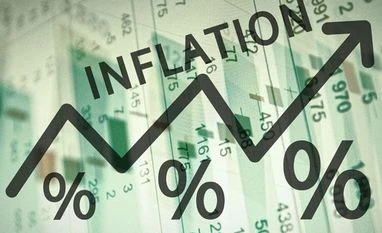Investors dumped shares on Thursday after a bigger-than-expected rise in U.S. inflation spooked Wall Street and sent bond yields surging, with European stocks mirroring losses in Asia.
The Euro STOXX 600 fell 1.5%, with indexes in Germany and Britain both slumping 1.9% as investors worried the U.S. Federal Reserve might move early on tightening its ultra-loose monetary policy.
Basic resources and oil and gas sectors, among the recent top gainers on the back of a surge in commodity prices, fell over 2%.
"Inflation pressures are going to be rising, and they're not going to be temporary," said Jeremy Gatto, investment manager at Unigestion. "What does that mean? Effectively that rates will be rising."
The MSCI world equity index, which tracks shares in almost 50 countries, fell 0.6% and was on course for its fourth straight day of losses.
Wall Street was blindsided on Wednesday when data showed U.S. consumer prices jumped by the most in nearly 12 years in April as booming demand amid a reopening economy met supply constraints at home and abroad.
More From This Section
The jump, which sparked the S&P 500's worst one-day drop since February, was largely due to outsized increases in airfares, used cars and lodging costs, all driven by the pandemic and likely to prove transitory.
Fed officials were quick to play down the impact of one month's numbers, with vice chair Richard Clarida saying stimulus would still be needed for "some time".
Yields on 10-year Treasuries steadied at 1.68%, having climbed 7 basis points overnight in the biggest daily rise in two months.
'BIG BATTLE'
Eurozone bond yields edged higher. Germany's 10-year yield, the benchmark for the region, was flat after hitting its highest since May 2019 on Wednesday.
Nasdaq futures were flat, losing earlier slim gains, while S&P 500 futures turned slightly negative.
As major economies reopen more fully from COVID-19 lockdowns, many investors expect higher levels of inflation to stoke volatility in equities markets through the year.
"This year is going to be a big battle between the bullishness of mass reopening/stimulus on one hand and the inflationary consequences on the other," Deutsche bank analysts wrote. "Expect regular pockets of vol."
Investors priced in an 80% chance of a Fed rate hike as early as December next year.
MSCI's broadest index of Asia-Pacific shares outside Japan lost 1.3%, with Asian shares already on the back foot this week after a tech sell-off on Wall Street.
Rising bond yields were a shot in the arm for the dollar, recently under pressure from rapidly expanding U.S. budget and trade deficits.
Against a basket of major peers, the dollar was down a smidgeon at 90.661, after climbing away from Wednesday's 10-week trough of 89.979. [L1N2N00E0]
Bitcoin steadied after sliding 13%, its worst one-day fall since January, after Elon Musk said Tesla Inc would stop accepting it as payment for its vehicles because of environmental concerns.
Bitcoin later regained ground, adding 3% and was last at $50,830.
Ether, the world's second-largest cryptocurrency, followed a similar pattern, dropping 8% on Wednesday from record highs before adding 4% on Thursday. It was last at $3,977.
(Reporting by Tom Wilson in London; Additional reporting by Wayne Cole in Sydney; Editing by Sam Holmes, Shri Navaratnam and Gareth Jones)
)